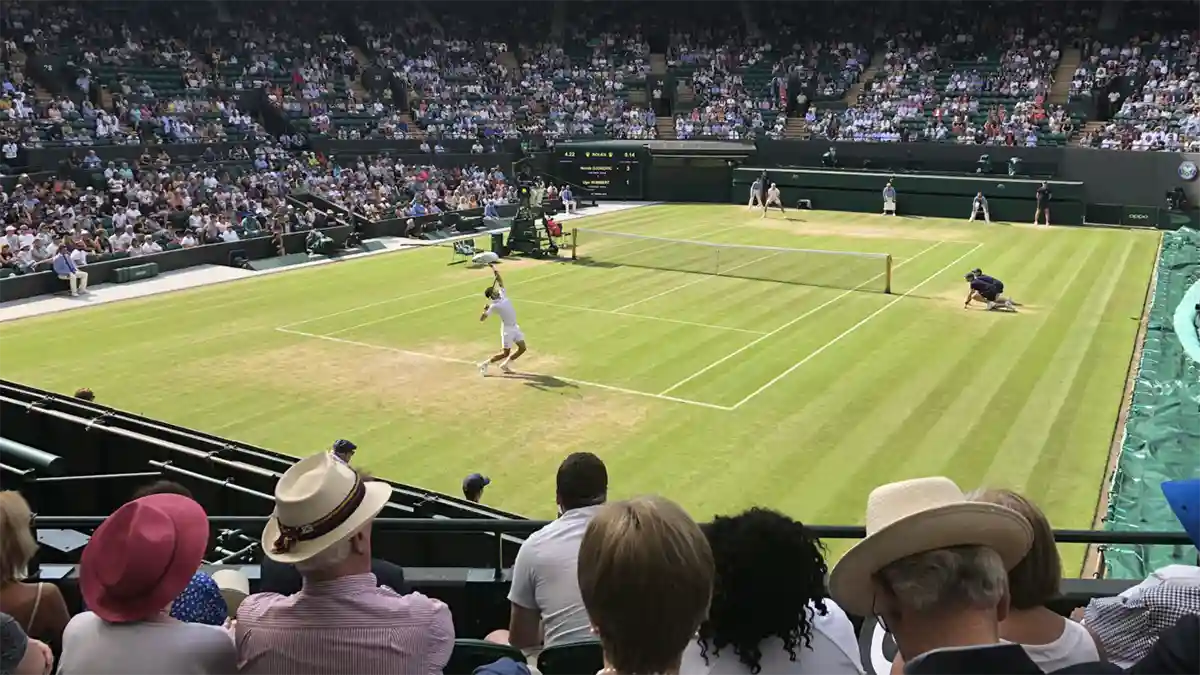The All England Lawn Tennis Club (AELTC) is warning that the UK government’s proposed cap on secondary-market ticket prices could threaten the very funding model that keeps Wimbledon’s famous grass courts pristine. The organization – which has operated the tennis tournament for more than 157 years – says that such price caps being applied to their debenture ticketing system would be “extremely damaging” to their business model.
Should the government go forward with its proposed price caps, the AELTC said it would pursue an exemption that continues their legal treatment as “tradeable assets regulated by the Financial Conduct Authority” per coverage in Financial Times.
Wimbledon’s debenture programme is unique in British sport: every five years the AELTC issues bonds that give holders premium seats on Centre Court or No. 1 Court for the life of that issue, and the right to resell those tickets on the open market. Those resales regularly generate significant premiums above the original cost, a feature the AELTC says is essential to maintaining demand for new debentures.
Over the past decade the scheme has funnelled more than £500 million back into venue upgrades and operations, according to AELTC associate director of finance & debentures Fiona Canning. “Every pound raised is reinvested in the Grounds,” she told the Financial Times ahead of the men’s and women’s finals over the weekend.
Government consultation eyes price ceilings
In January, the Department for Business & Trade and the Department for Culture, Media & Sport closed a wide-ranging consultation on “putting fans first.” Among the options: a law that would make it illegal to resell tickets above their original face value or at more than a fixed percentage—potentially 30 per cent—above that price, along with tougher limits on how many tickets an individual can list for sale.
FURTHER READING: UK CMA Backs Ticket Price Caps Despite Black Market Risks | Analysis: Price cap bills would push fans into risky markets
While the AELTC says it supports efforts to curb large-scale touting, it is lobbying for Wimbledon’s debentures to be exempt, or for a new “authorised resale” category that would sit outside any cap. Club officials argue that if prospective buyers cannot count on recovering—or profiting from—their outlay, demand for new debentures could collapse, starving the tournament of a critical capital source.
Wider industry push-back
The tennis club is not alone. Last month StubHub International chief executive Bob Kupbens said the company would “probably be forced to leave the UK” if even a 30 per cent cap is imposed, saying the margin is too thin to cover guarantees, fraud prevention and customer service.
Ticketing platforms are also keenly aware of political momentum. The consultation followed a public outcry over dynamic pricing during ticket sales for the Oasis reunion tour, where some seats jumped from £135 to £350 in real time—a practice now under investigation by the UK Competition & Markets Authority and the European Commission.
Officials at the Department for Business & Trade say they are “considering the evidence” from more than 30,000 submissions and will announce next steps “soon.” There is no firm timetable, but industry observers expect clarity before Parliament’s autumn session.
For Wimbledon, timing is critical: the next five-year issue of Centre Court debentures is due to be marketed early in 2026. Any ambiguity over future resale rights could chill interest among the high-net-worth buyers who historically snap them up.




